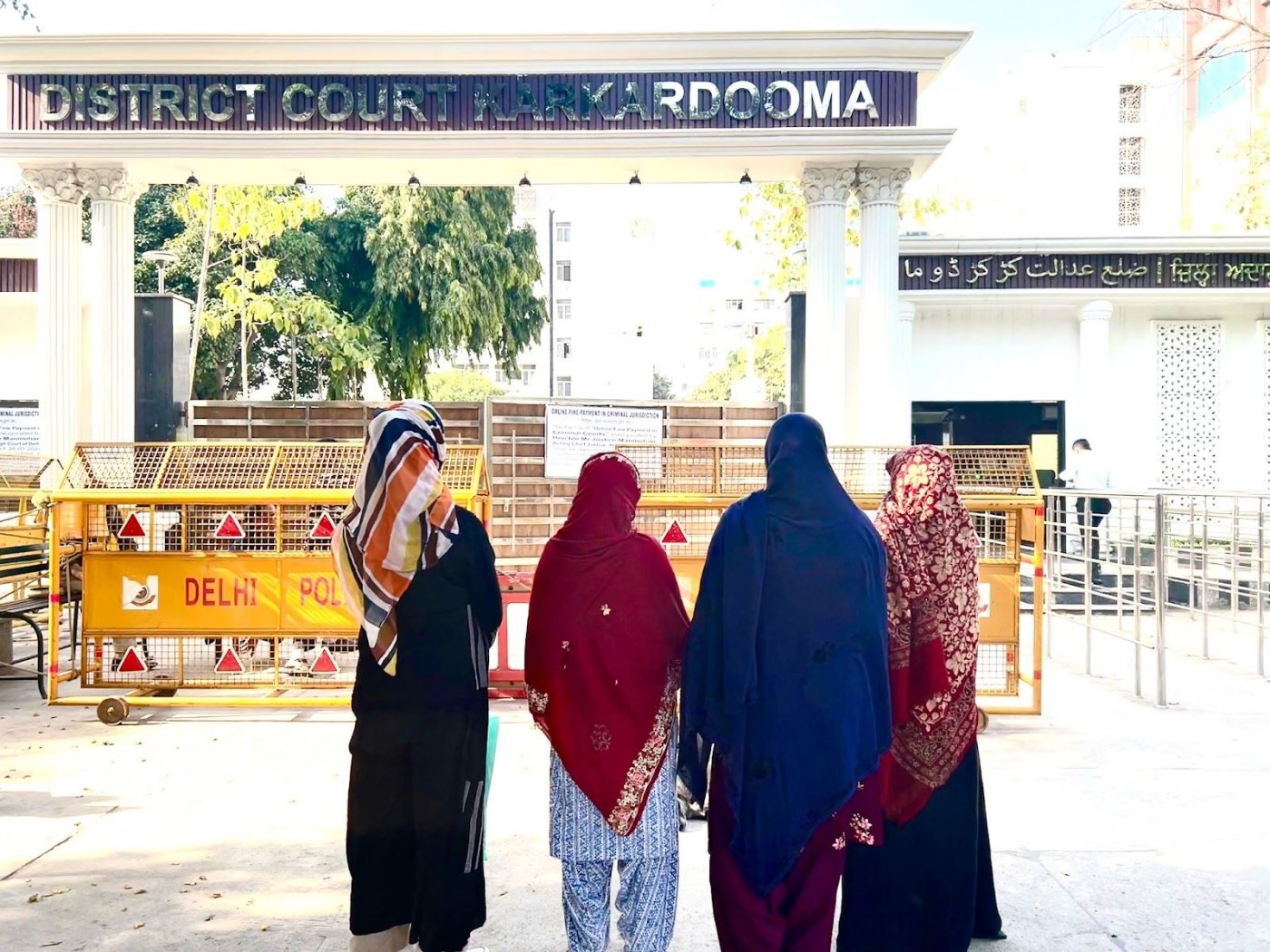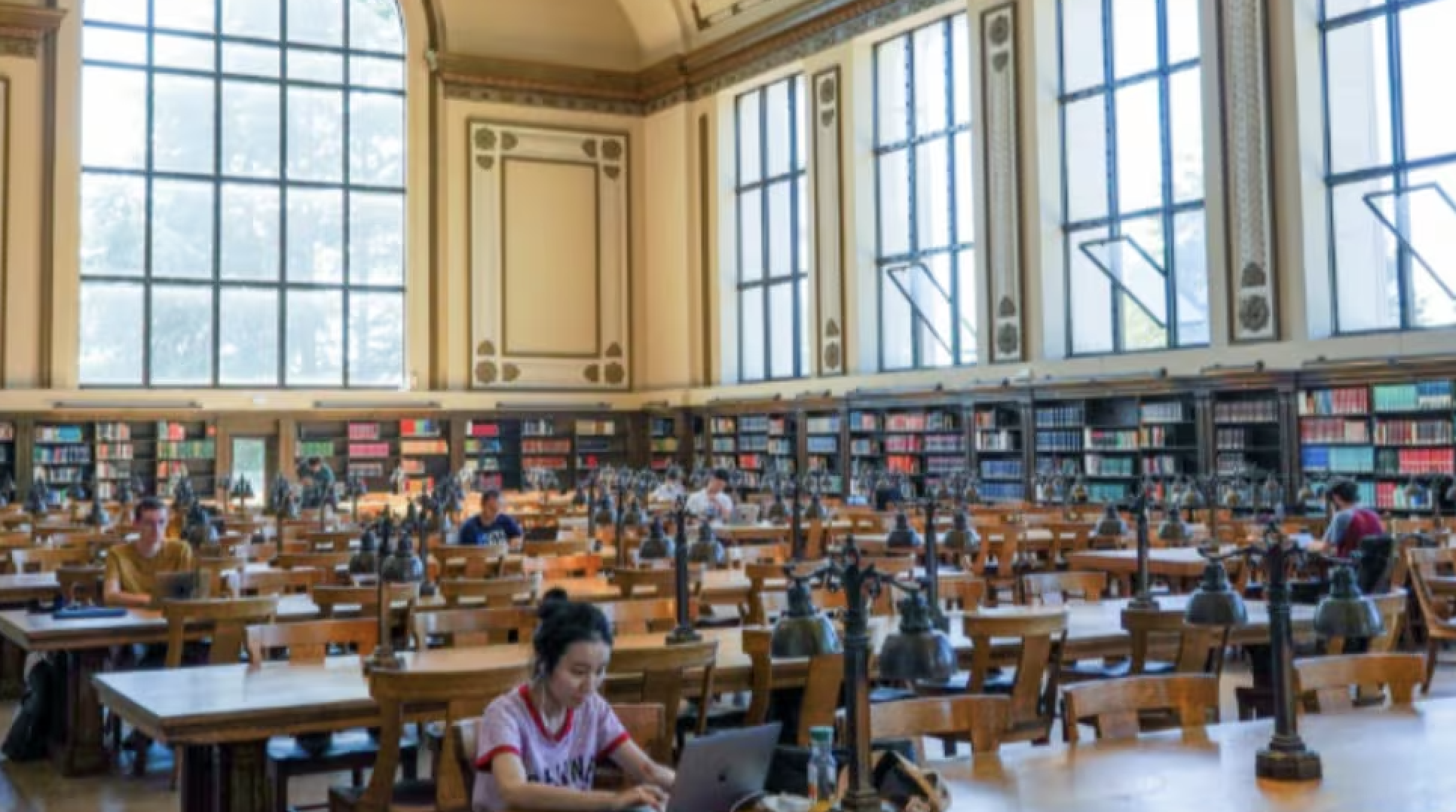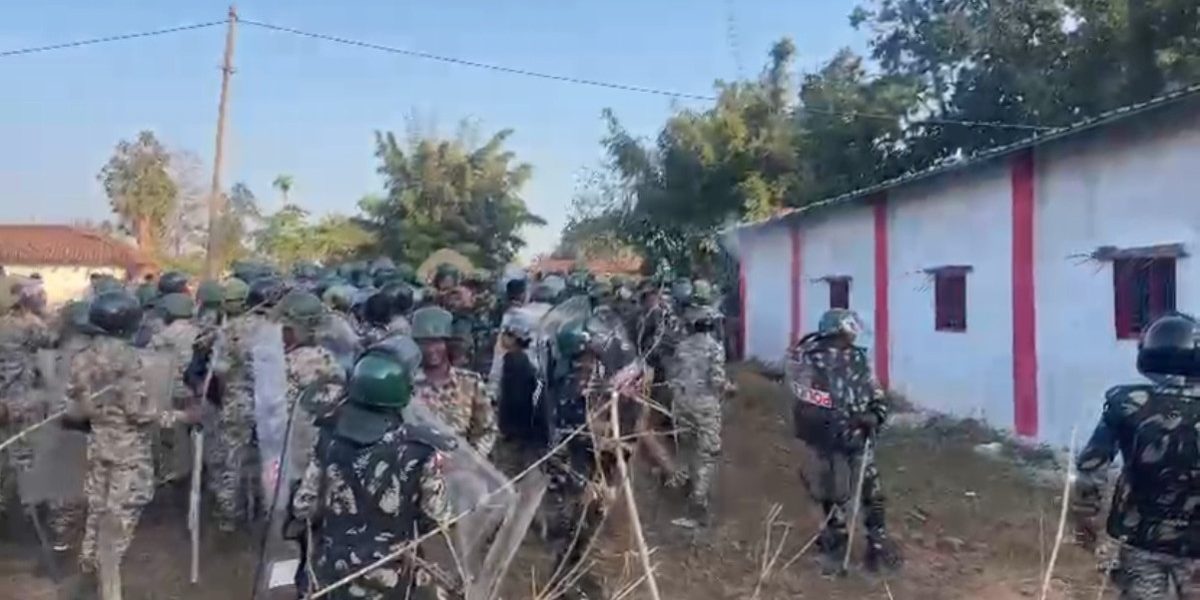
By Poorvi Gupta
Delhi: When A* has to go to court in connection with a Delhi riots case, the 28-year-old, who earns Rs 5,000 every month packing makeup products in a factory, has to take leave for half a day and sometimes a whole day, losing between Rs 150 to 300 each time.
On the days the hearings are in the afternoon, she rushes home from work, picks up her son, and goes to the district court complex in Karkardooma, around 5.4 km from her house in Junta Colony in northeast Delhi, and takes an auto, which costs her Rs 100.
“At the court, it is very gloomy. I don’t talk to anyone because what’s even there to talk? I wait for the proceedings to begin with my son clutched to me, clock in my attendance,” she said.
The next hearing is on 3 October 2024.
When the Jafrabad police first approached A in November 2020, she had just returned home from work at a factory where she packed wedding cards at the time.
Four policemen came to her house in Junta Colony parallel to the Jafrabad metro station in northeast Delhi, where just a few months earlier, Muslim women of the area led a protest against a controversial citizenship law seen as discriminatory to Muslims.
This story was originally published in article-14.com. Read the full story here.





